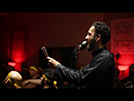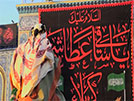4-An Islamic Life-Style
- Details
- Hits: 4185
4-AN ISLAMIC LIFE-STYLE
Question:
What is meant by an Islamic life-style?
Answer:
An Islamic life-style relates to man's various activities but, however, concerns matters which Islam either encourages or discourages but which are not in the category of being obligatory or forbidden.
Such a life-style or way of living is to the greater benefit of the individual and society in this world and the next.
Question:
If these matters bring about an upward spiritual growth in man why has not Islam made them obligatory?
Answer:
Because Islam realizes that man by nature is weak and does not want to tire him out with a plethora of laws. Therefore it has only made obligatory what is essential for his religion and his well-being in this life and has left the non-essential matters up to him entirely. If he wishes he can do them, and if he does not want to do them then he need not. Islam has issued directives concerning matters of which it approves or disapproves so that those of strong character who seek greater advance and well-being for themselves and for society as a whole should act upon them.
Question:
Please give us examples of Islamic behaviour or an Islamic life-style.
Answer:
An Islamic life-style is multi-faceted but here we shall set out the main aspects of Islamic behaviour and which relate to the following subjects:
1. What a woman should do when a man wants to marry her, and vice-versa. The subject is bound up with considerations regarding religion, manners, looks, finance, family and maturity.
2. The marriage ceremony, dowry, the intimate side of marriage, how a husband and wife should treat one another, the waiting-period after divorce (the ‘idda), becoming a widow.
3. Pregnancy, breast-feeding and the bringing-up of children.
4. Responsibility relating to work (man and wife) within the house and outside.
5. Dress code in relation to fabric, colour, cut and the number of dresses.
6. The hair, beard, eyebrows and the hair on the rest of the body, as regards combing, oiling, cutting and beautifying, the removal and plucking of hair and dyeing and colouring.
7. The rules of caring and looking after the body as regards oiling, rubbing the skin and doing exercise.
8. Eating and drinking.
9. Waking, sleeping, lying down and stretching out the body.
10. Applying kohl (antimony) to the eyes, brushing the teeth, using a toothpick or dental floss, making the mouth smell nice as well as the whole body.
11. Going to the bathroom or toilet with regard to entering and leaving, how to cleanse oneself with water and remove impurities (after bodily functions) and wearing a bathing cloth.
12. Meeting one another and such topics as being the first to greet the gathering, opening up space for others, and the guarding of tongue, eyes and ears from habits incompatible with good manners like whispering in someone’s ear; eschewing foolish talk; the use of polite language when meeting others and avoiding vulgarity; and the way of sitting properly.
13. Eating and the way of eating with others; washing the hands before and after eating; to eat only when hungry and to stop eating before being full; how to sit properly before the food; to partake first of all with salt; saying bismillahi-rrahmani-rrahim (in the name of God, the Most Merciful, the Most Compassionate) at the beginning of the meal and al-hamdulillahi Rabb al-‘alamin (praise be to God, the Lord of the worlds), or similar expressions of thanks to God, at the end.
14. Drinking water: whether to drink standing or sitting; gulping down the water or drinking in sips; the suitable time to drink.
15. Making a living and engaging in trade.
16. Farming.
17. Keeping healthy: ways of preventing bad health and how best to go about a cure.
18. Teaching and learning, duties of a teacher and his student, composition, handwriting and memorising lessons.
19. Business transactions; buying and selling; renting and pawning and related matters.
20. Buying poultry and birds and how best to look after them.
21. Keeping the house and the area around it clean and how best to arrange the house and its rooms and so on.
22. Acquiring livestock and other animals: watering and feeding them; getting them to carry loads and looking after them.
23. Constructing buildings.
24. Widening roads, digging wells, opening up canals and rivers.
25. Profiting from the hidden resources of the world: mines, treasure hoards (sea and land).
26. Behaviour when travelling or staying in a place.
27. The prescribed way of slaughtering an animal.
28. The sentencing of crimes and redress of grievances and matters relating to the judge, the witnesses, the taking down in writing of the court proceedings, documents produced to substantiate a claim, the way a courtroom should be arranged and the hearing of an independent opinion.
29. Wearing gold and jewellery and looking in the mirror.
30. Going to the lavatory as regards squatting or sitting, what to say before entering and after leaving and the removal of impurities.
31. Socializing with relatives and people in general; shaking hands and so on.
32. Establishing peace and enacting a peace-treaty; war and attacking the enemy.
33. Boarding and alighting from a vehicle and the like, alighting in the middle of the road, accompanying a friend on a journey.
34. Someone who is about to die, someone who has died, the funeral procession, the grave, mourning and so on.
35. How a healthy person treats someone who is ill.
36. Being rich and being poor.
37. Telling other people about Islam and how best to guide them to the truth.
38. The way a judge, religious scholar, preacher, imam of the mosque and other people in authority should behave.
39. Making a will, matters relating to the carrying out of punishments and judicial retaliation.
40. Invoking God, the five daily ritual prayers, the other acts of worship and the visiting of holy shrines.
There are many other topics for which we would require numerous volumes if we were to cover them in detail. Our aim here was simply to refer to the main themes.











